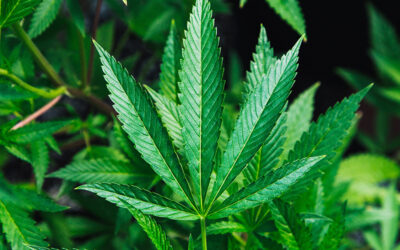While cannabis continues to be classified as a Schedule 1 substance and is therefore illegal federally, states are allowed to adapt their own legislation. Marijuana laws vary state-by-state.
Medical Marijuana States
Currently, 32 states have passed laws to establish comprehensive public medical marijuana programs. California was the first to allow medical use of marijuana with the passing of Proposition 215 in 1996. Since then, several additional states have adopted medical marijuana legislation, including Alaska, Arizona, Arkansas, California, Colorado, Connecticut, Delaware, Florida, Hawaii, Illinois, Maine, Maryland, Massachusetts, Michigan, Minnesota, Missouri, Montana, Nevada, New Hampshire, New Jersey, New Mexico, New York, North Dakota, Ohio, Oklahoma, Oregon, Pennsylvania, Rhode Island, Utah, Vermont, Washington, and West Virginia. The District of Columbia and Puerto Rico also allow medical marijuana use. The diseases and conditions for which marijuana can be prescribed vary by state.
Fifteen states have adopted limited access marijuana product laws, allowing only therapeutic cannabis that is low in THC and high in CBD. These states include Alabama, Georgia, Iowa, Kentucky, Louisiana, Mississippi, Missouri, North Carolina, South Carolina, Tennessee, Texas, Utah, Virginia, Wisconsin, and Wyoming. Restrictions and the diseases and conditions for which the high CBD oil can be used to treat vary by state.
Recreational Marijuana States
Eleven states, including Alaska, California, Oregon, Colorado, Illinois, Maine, Massachusetts, Michigan, Nevada, Vermont and Washington, as well as Washington D.C. have approved laws legalizing recreational marijuana. The amount you can possess at one time, however, varies between the states.
Cannabis Cultivation Laws
Eight states, including Alaska, California, Colorado, Maine, Massachusetts, Michigan, Nevada and Oregon, allow for home cultivation for recreational use of marijuana. Adults in Washington D.C., can also possess plants for recreational use. How many plants an adult can cultivate varies state-by-state.
Fifteen states allow qualified medical marijuana patients or their primary caregivers to cultivate plants. These states include Arizona, California, Colorado, Hawaii, Maine, Massachusetts, Michigan, Missouri, Montana, Nevada, New Mexico, North Dakota (living 40 or more miles away from a dispensary), Oklahoma, Rhode Island, Utah (subject to change) and Vermont. The number of plants one can cultivate varies by state.
The cultivation of hemp is legal under U.S. federal law following the passage of the 2018 Farm Bill. Included in the monumental bill is a provision that amends the federal list of controlled substances with regard to hemp and reclassifies the plant as an agricultural commodity. The change allows states to regulate hemp and hemp-derived products as they choose.
Previously, a provision within the 2014 federal Farm Bill gave permission for universities and state departments of agriculture to cultivate industrial hemp for limited purposes. More than 35 states enacted laws to establish research-purpose industrial hemp programs, including Alabama, Arizona, Arkansas, California, Colorado, Connecticut, Delaware, Florida, Hawaii, Illinois, Indiana, Kansas, Kentucky, Maine, Maryland, Massachusetts, Michigan, Minnesota, Montana, Nebraska, Nevada, New Hampshire, New Jersey, New Mexico, New York, North Carolina, North Dakota, Oklahoma, Oregon, Pennsylvania, Rhode Island, South Carolina, Tennessee, Utah, Vermont, Washington, Virginia, West Virginia, and Wyoming.
Legalization of CBD from Hemp Oil
Hemp-derived CBD products are legal under Federal Law in the United States; however, individual state laws are dynamic and fluid. Individual states may enact their own laws governing hemp-derived CBD.
References:
State Laws. (n.d.). NORML. Retrieved from http://norml.org/laws.
State Medical Marijuana Laws. (2015, October 16). National Conference of State Legislatures. Retrieved from http://www.ncsl.org/research/health/state-medical-marijuana-laws.aspx.






